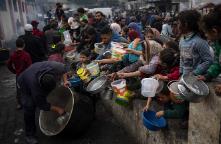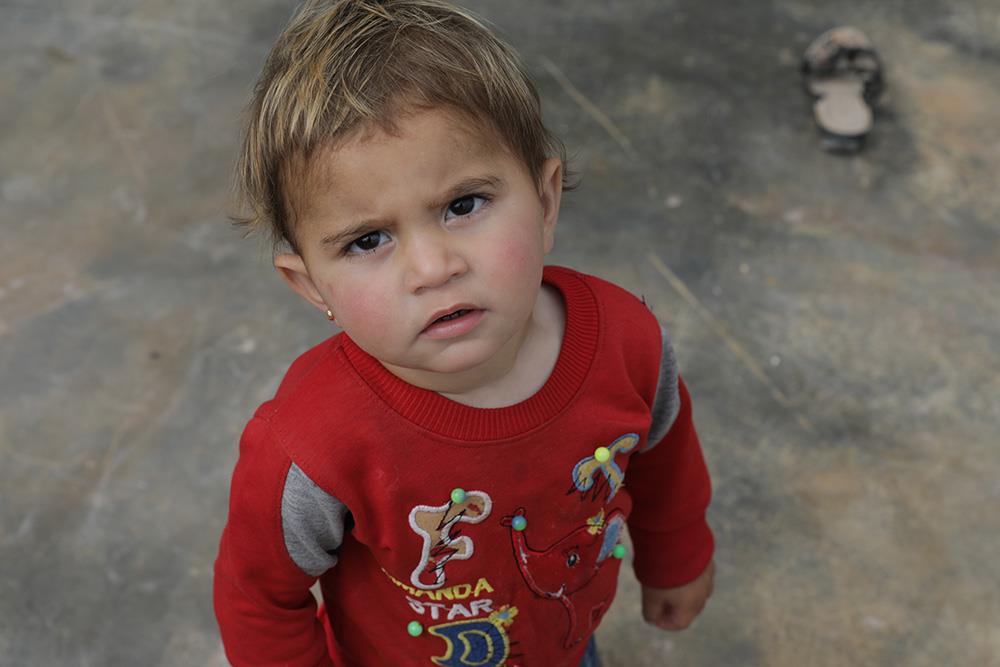
Syria’s economy is spiraling further downward, food costs keep rising, and people are going hungry
The cost of feeding a family of five with only basic items has almost doubled over the past year
UNITED NATIONS: More Syrians need humanitarian assistance now than at any time since the country’s civil war began in 2011, the UN’s deputy humanitarian chief said Friday, a sign that “the world is failing the Syrian people.”
Assistant Secretary-General Joyce Msuya told the UN Security Council that this week’s assessment of humanitarian needs found that 14.6 million Syrians will depend on assistance this year, a 9 percent increase from 2021 and a 32 percent increase from 2020.
“This cannot be our strategy,” she said, stressing that Syria now ranks among the 10 most food insecure countries globally, with 12 million people having limited or uncertain access to food.
Msuya said Syria’s economy is spiraling further downward, food costs keep rising, and people are going hungry. The cost of feeding a family of five with only basic items has almost doubled over the past year.
Families are now spending on average 50 percent more than they earn, which has meant borrowing money to get by, she said. This has forced “unbearable choices,” including pulling children, especially girls, out of school and increasing child marriages.
“Female-headed households, older persons without family support, persons with disabilities, and children are disproportionately impacted,” Msuya said.
She urged donors to respond generously to the UN’s upcoming humanitarian appeal for Syria for 2022, which will be geared toward ”increasing resilience” and access to basic services, including water.
“We need more funding and we need to scale up early recovery programing alongside our life-saving work,” Msuya said. “But most importantly, Syrians need peace.”
Geir O. Pedersen, the UN’s special envoy for Syria, told the council that militarily, “any of a number of flashpoints could ignite a broader conflagration.”
He cited as examples mutual shelling, skirmishes, and incidents involving improvised explosive devices across frontlines in the northwest, northeast and southwest as well as violence across international borders. There also have been drone strikes in the northeast, Israeli strikes in the south and in the capital Damascus, and security incidents on the Syrian-Jordanian border which the Jordanian government says are related to drug smuggling.
“It is plain that there is a stalemate, that there is acute suffering and that a political solution is the only way out,” Pedersen said.
He announced that a 45-member committee representing the Syrian government, the opposition and civil society will resume talks in Geneva on March 21 on draft constitutional reforms, and the co-chairs have agreed to future sessions in May and June.
Syria’s conflict that began in March 2011 has killed half a million people and displaced half the country’s pre-war population of 23 million, including more than 5 million refugees mostly in neighboring countries. Though fighting has subsided in recent months, there are still pockets controlled by the Syrian opposition, where millions of people live.
A 2012 road map to peace in Syria approved by representatives of the United Nations, Arab League, European Union, Turkey and all five permanent Security Council members calls for the drafting of a new constitution. It ends with UN-supervised elections with all Syrians, including members of the diaspora, eligible to participate. A Security Council resolution adopted in December 2015 unanimously endorsed the road map.
At a Russia-hosted Syrian peace conference in January 2018, an agreement was reached to form a 150-member committee to draft a new constitution. A smaller 45-member body would do the actual drafting, including 15 members each from the government, opposition and civil society. It took until September 2019 for the committee to be formed.
Pedersen said he is concerned that Russia’s invasion of Ukraine this week could make it more difficult to get the “international diplomacy” needed for a political process to implement the road map and bring peace to Syria, which is a close ally of Russia.











